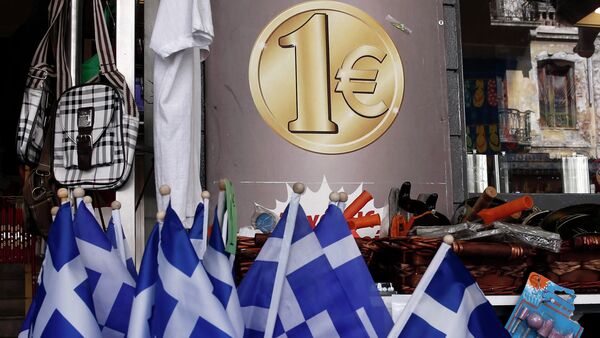On Thursday, the Greek Parliament approved a second package of measures necessary for the resumption of talks with the creditors for a third bailout. The deal includes painful austerity-based reforms, including additional tax increases, changes to VAT rates, and pension reforms, in exchange for a three-year $95-billion package.
"The memorandum can definitely not be viewed as an answer to the economic crisis in Greece or an answer to guaranteeing debt services. The Greek debt (and this is acknowledged by the international creditors) is not viable, meaning that the tougher the measures, the less there is possibility for the debt to be serviced. Therefore the logic of austerity sounds like a pretext, but not as a solution," Milopoulos said.
He explained that tough austerity measures make investment and economic growth in the country impossible, posing a threat to debt payback.
Austerity Pressure on Athens Result of Greek-EU Standoff
The European Union is trying to toughen austerity measures against Greece because Athens resists a neo-liberal approach to shaping the future of Europe, Milopoulos told Sputnik.
"What is happening right now is a political struggle between Europe on the one hand, that is trying to impose Greece an austerity program fully adjusted to the neo-liberal approach, and Greece that is trying to react and act for a new Europe to be shaped, on the other."
Milopoulos said that the German "hegemony" in Europe has led to the creation of institutions "seeking the ruling of markets and not of people."
Greece is seeking to restructure its $350-billion debt, most of which is owed to the Eurogroup nations, the IMF and the ECB.
The leftist Greek government came to power in January promising to resist austerity measures imposed by international creditors. However, the final proposal of the lenders, now accepted by Athens, includes all of the original austerity demands.
On July 13, Eurozone leaders agreed to provide a new $95-billion bailout plan for Greece in exchange for reforms. Greek Prime Minister Alexis Tsipras said he was forced to choose between a deal with creditors or bankruptcy and leaving the Eurozone.




